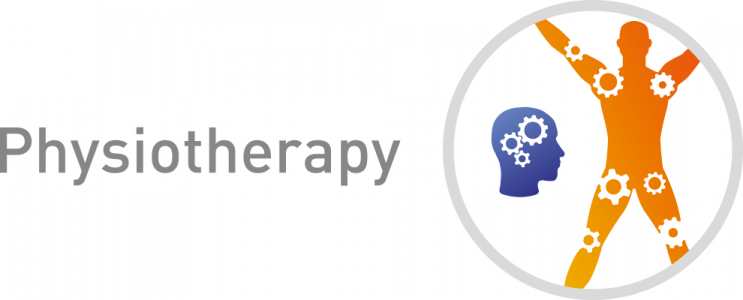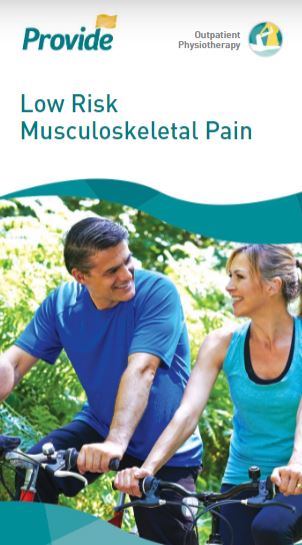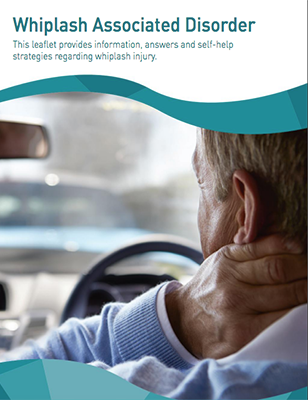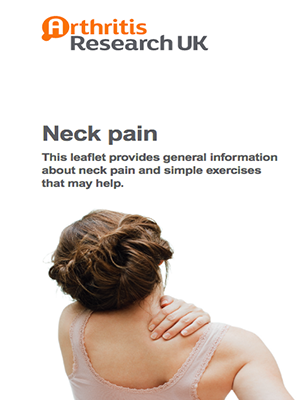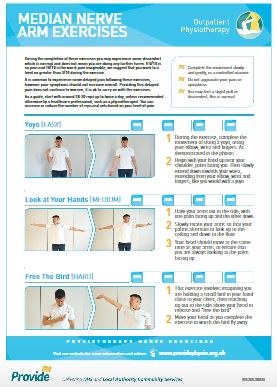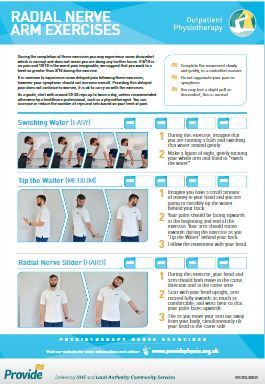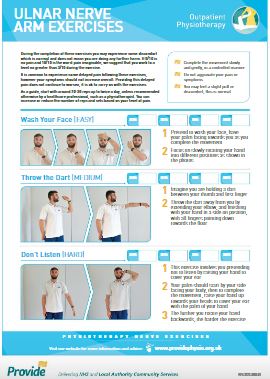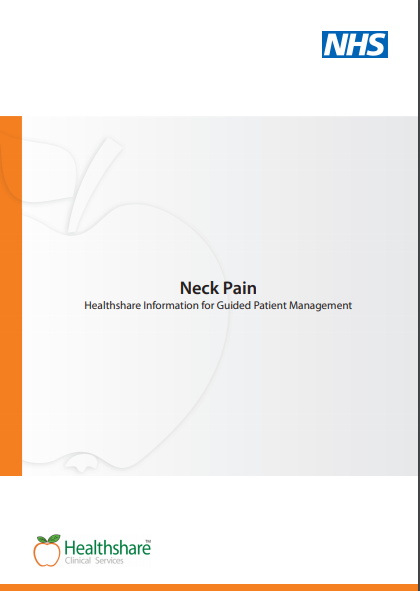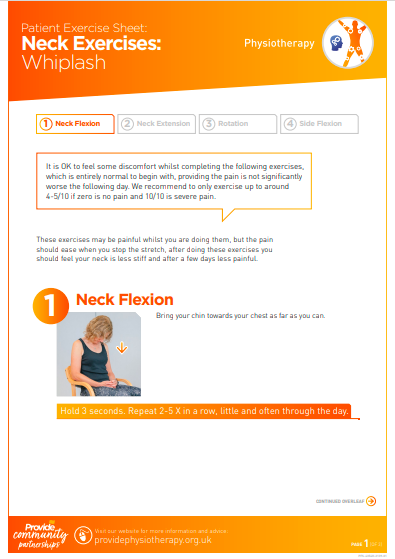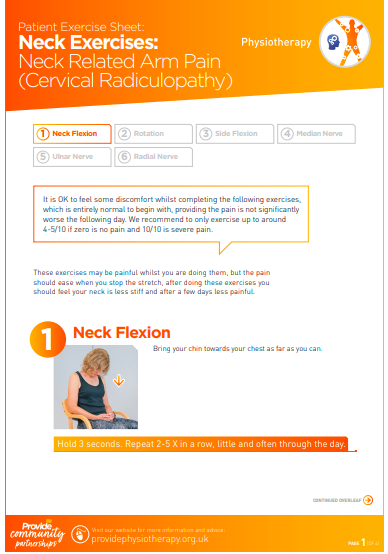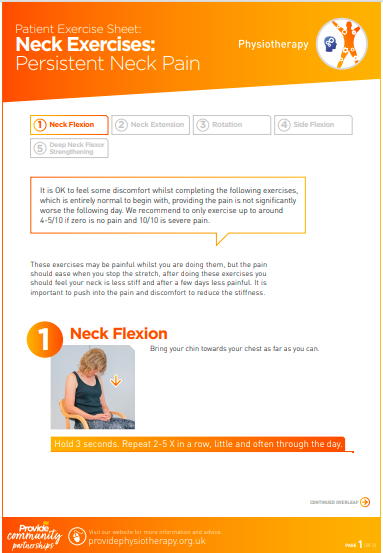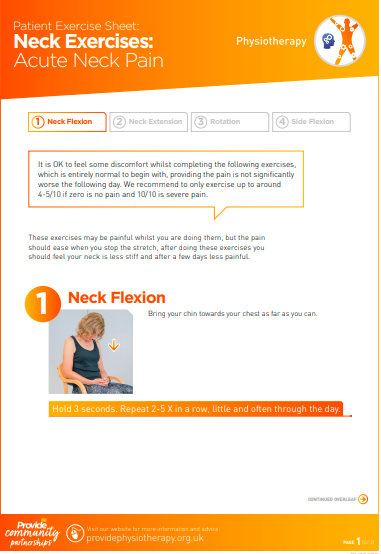Overview
Neck pain is a common problem – 2 out of 3 of us will experience it at some point. It’s not usually serious and most often eases on its own or with simple advice and neck exercises. Neck pain is often caused by a simple muscle strain or tension. Other causes include injury, such as whiplash, or gradual changes to the joints due to natural ageing.
As more and more people spend their working day at a computer or sat in an office, the neck and shoulder muscles can become stiff or overused.
With the right guidance and support, most people with neck pain will recover without the need for medical help. Understanding neck pain and what you can do to help yourself get better is an essential part of your recovery.
If you are not sure of the cause of your neck pain then click below to complete our Musculoskeletal Symptom Checker to learn about potential causes of your symptoms and the best ways to manage these in the Self Help section.
Type Of Neck Pain
Have you have been experiencing neck pain for less than 6 weeks? If yes, then you are suffering with acute neck pain.
This is a recent onset of pain which might be caused by a sprain or strain of the neck although more commonly it starts for no obvious reason without sustaining any specific injury to your neck. Even a period of stress or tiredness can cause pain and stiffness along with muscle tension across the neck and shoulders.
The pain can come on suddenly or over a few days or weeks and can range from a mild pain or ache to quite severe pain, which can be extremely distressing and can sometimes stop you carrying out your everyday activities.
Despite having acute neck pain, it is essential that you keep the neck moving from day one, even if you might have to temporarily do a little bit less than usual initially, and then gradually build up to return to your normal activates. Heat can also help to relax the neck muscles to allow slightly more movement too.
For more help with improving acute neck pain, please see other sections. Click Here for exercises that our physiotherapists would recommend to help with acute neck pain.
Have you been experiencing neck pain for more than 3 months? If yes, then you are suffering with persistent, also known as chronic, neck pain.
This type of neck pain will initially start like Acute Neck Pain although the pain continues even after the original cause of neck pain has healed. However, prolonged slouched sitting postures at home and work can still play a part. Check out these useful postural exercises to practice every day to help neck pain.
The pain you feel is just as real and unpleasant although it is much less to do with any ongoing tissue damage in the neck, but more due to an over sensitive protective system that continues to produce pain in your neck and sometimes the arms too.
This pain protective system can be influenced by multiple things including thoughts, feelings and beliefs as well as confidence to move the neck again.
Unfortunately, there are several unhelpful and incorrect messages given about neck pain which can actually make the problem worse. Click on the FAQ section to bust some myths about neck pain and start trusting your neck again.
Although persistent neck pain can be more complex, it can still be improved through understanding pain better and changing the way to approach it.
For more help with improving Persistent Neck Pain, please see other sections.
You can also Click Here for exercises that our physiotherapists recommend to help with persistent neck pain.
Nerve gliding exercises can help to reduce your neck related arm pain and you can bias specific nerves depending on where you are experiencing the symptoms in your arm and hand.
If you are feeling pain and/or pins and needles mainly down the front of your arm and into the palm of your hand and thumb, index and middle finger – Click Here for median nerve gliding exercises to help reduce your arm pain.
If you are feeling pain and/or pins and needles mainly down the back or outer side of your arm and into the back of your hand – Click Here for radial nerve gliding exercises to help reduce your arm pain.
If you are feeling pain and/or pins and needles mainly down the inner side of your arm and into your ring and little finger – Click Here for ulnar nerve gliding exercises to help to reduce your arm pain.
However, there are some rare cases where it might be related to a specific structure in the neck. Click on Further Support for additional information and when to see a healthcare professional. Some people with cervical radiculopathy may require prescribed medication to help with nerve pain.
Is my neck pain likely to persist?
Take Our One Minute Test
This quick questionnaire can help you identify how likely your pain is to persist over the next 6 months and whether you may need some extra support. It has been developed by a team of experts from Keele University – Click here for more information about the tool.
The tool has been shown to be very useful for people with common Musculoskeletal pain to profile individual risk of having a poor recovery and to use as a guide in conjunction with support from a healthcare professional if necessary.
Try out the questionnaire for yourself to see how you score and to get further help and advice. It will also be useful to retake the questionnaire after you have learned more key facts about your pain, either from this website or from a healthcare professional, to re-assess in time whether your neck pain problem is improving.
| For question 1 – 9, think about just the last two weeks: |
|---|
| Pain intensity 1. On average, how intense was your pain? [where 0 is “no pain”, 10 is “pain as bad as it could be”] |
| Select one of the options for each question below | Yes | No |
|---|---|---|
| 2. Do you often feel unsure about how to manage your pain condition? | ||
| 3. Over the last 2 weeks, have you been bothered a lot by your pain? | ||
| 4. Have you only been able to walk short distances because of your pain? | ||
| 5. Have you had troublesome joint or muscle pain in more than one part of your body? | ||
| 6. Do you think your condition will last a long time? | ||
| 7. Do you have other important health problems? | ||
| 8. Has pain made you feel down or depressed in the last two weeks? | ||
| 9. Do you feel it is unsafe for a person with a condition like yours to be physically active? | ||
| 10. Have you had your current pain problem for 6 months or more? |
High Risk
This test suggests you have some serious concerns about how well your neck will recover. This may be related to feeling low and anxious generally or by being afraid that you might have done something serious to your neck.
It might help to discuss your concerns with a doctor or physiotherapist if things are still not improving over the next few weeks after following the advice and exercise in the Self Help section.
Also, visit the section on Persistent Pain for more information and support.
99 times out of 100 your neck pain is not related to a serious condition. Allowing yourself to move normally, without too much worry, will help your neck to return to normal. Painkillers often help you to move normally, while your neck recovers.
If you are feeling low or anxious, whether this I related to your neck pain or not, and you would like further help and support, visit NHS website – Health in Mind.
Alternatively, Click Here for an interactive online self-help programme to help manage symptoms of depression and anxiety.
Medium Risk
This test suggests you may have some doubts about how well your neck will recover.
This may be related to feeling low and anxious generally or by being afraid that you might have done something serious to your neck.
It might help to discuss your concerns with a doctor or physiotherapist if things are still not improving over the next few weeks after following the advice and exercise in the Self Help section.
99 times out of 100 your neck pain is not related to a serious condition. Allowing yourself to move normally, without too much worry, will help your neck to return to normal. Painkillers can help you to move normally, while your neck recovers.
You might also want to access the Essex Lifestyle Service for further support and help on making healthy lifestyle choices and live healthier lives as this could be contributing to your neck pain.
Low Risk
Congratulations! You most likely have the right ideas about your neck pain, and feel in control of how you manage your recovery.
We all know an episode of neck pain is very annoying, and at times extremely painful. Carrying on as normal and continuing to move your neck allows the quickest recovery, and stops your neck stiffening up.
Keep going as you are, although read this short leaflet for more information and advice to get better even quicker.
You might also want to access the Essex Lifestyle Service for further support and help on making healthy lifestyle choices and live healthier lives as this could be contributing to your neck pain.
Self Help
Evidence has shown that people who understand their Musculoskeletal health problem and take an active involvement to help themselves have a much better outcome.
Here are some really helpful leaflets, videos, exercises and useful links to other websitesthat have been approved by our physiotherapists so that you can start getting better with your neck pain today!
This information is not intended or implied to be a substitute for professional medical advice, diagnosis or treatment if required. All content is for general information purposes only.
Click Here to access our getUBetter app, which is an easy, safe and effective way to support your recovery.
Leaflets
Videos
Exercises
Useful links
- Further information on neck pain including the ‘do’s and don’ts’ to ease and prevent neck pain yourself as well as when to seek medical advice.
- An overview of whiplash including symptoms, when to get medical advice, causes, treatments and outlook.
Further Support
If your neck pain is still not improving despite following the advice and guidance provided on the website and you score a ‘Medium’ or ‘High Risk’ when completing the ‘Is my neck pain likely to persist?’, you may require further help and support from the Physiotherapy Service. Please click on the ‘Physiotherapy Self-Referral’ box to refer yourself to the service for further management of your back problem.
Remember that most causes of neck pain are not due to anything serious, although there are rare cases where you would need to seek urgent medical help. See your GP as soon as possible if you have any of the following symptoms that have started around the same time as your neck pain:
- Numbness, pins and needles or weakness in one or both arms that’s getting worse
- Recent problems with your balance or walking
- Blurred vision, ringing in your ears or dizziness for longer than 48 hours
- Headaches unlike ones before
- Previous history of cancer
Alternatively, contact NHS 111 for further advice if you have any of the symptoms above.
